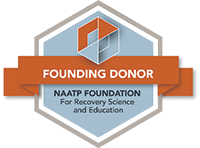ALCOHOL EVALUATION & QUESTIONS ABOUT ALCOHOLISM
Many people that suffer from alcoholism don’t recognize that they are suffering. Diagnosing an AUD is more straightforward than many people think. It starts with being honest with yourself.
If you or a loved one is struggling with alcoholism, keep reading to learn more about alcohol evaluations and get answers to some of the most common questions about alcoholism.

Alcohol abuse is not the same as alcohol addiction. While abuse can lead to addiction, they are not the same thing. Someone abusing alcohol or someone with a “drinking problem” can often reduce their drinking or even stop drinking entirely on their own. Someone suffering from alcohol dependency or alcohol addiction often needs professional treatment to quit.
According to the National Institute on Alcohol Abuse and Alcoholism (NIAAA), you may have a drinking problem if you:
- Have 5 or more drinks in a day and more than 14 drinks in a week for men
- Have more than 4 drinks in a day and more than 7 drinks in a week for women
If you are suffering from a more serious alcohol-related issue, such as alcohol dependency or AUD, you may experience the following:
- Drinking more than you planned
- Needing to drink more and more to “catch a buzz” or feel drunk
- Drinking in dangerous situations
- Experiencing withdrawal symptoms when not drinking
- Continuing to drink despite the negative consequences
- Trying to quit but being unsuccessful
- Constantly thinking about alcohol or drinking
- Struggling at work or school
- Getting into financial or legal trouble as a result of drinking

Finding an Alcohol Evaluation
- Alcohol Use Self-Assessment
- Michigan Alcohol Screening Test (MAST)
- Alcohol Use Disorders Identification Test (AUDIT)
- CAGE Questionnaire
- FAST
Understanding An Alcohol Evaluation
Note that according to the Diagnostic and Statistical Manual of Substance Use Disorders (DSM-5):
- 2-3 “yes” answers indicate a mild substance use disorder
- 4-5 “yes” answers indicate a moderate substance use disorder
- 6 or more “yes” answers indicate a severe substance use disorder
Many people can go out with friends or come home from a day at the office and have a drink or two over the course of the night and be good. However, someone struggling with their drinking may start off by having just one or two but then not be able to stop. Before they know it, one or two turns into 3 or 4, 4 or 5, etc until they have lost count entirely.
Someone who doesn’t have an AUD might wake up one morning and realize that their drinking is getting out of hand and be able to either cut back or stop drinking entirely with little to no issue.
On the other hand, someone struggling with alcohol dependence or addiction may wake up one morning, realize the same thing, and still not be able to stop. Additionally, someone with an AUD might even try and quit drinking but find themselves unsuccessful in doing so. The best help for an individual dealing with this is a residential treatment program.
Another sign that a person’s drinking may have reached an unhealthy level is that their drinking has started directly affecting their personal relationships, both romantic and platonic.
Alcohol abuse and addiction can lead to a variety of domestic issues such as:
- Domestic violence
- Loss of intimacy
- Betrayal of trust
Additionally, those suffering from addiction tend to gravitate to others who are also using, often abandoning their old social circles in favor of their new one. This can lead to an increased risk of alcohol use which can make their AUD even worse.
Someone that does not have an unhealthy relationship with alcohol can go extended periods of time without drinking or even thinking about drinking for that matter. Drinking is something they do here and there but it is not an integral part of their daily life.
For someone struggling with alcohol use, alcohol, and drinking is something that is on their mind constantly. Their thoughts or cravings may be so extreme that they may think about alcohol as soon as they wake up in the morning or be craving a drink at an inappropriate time. Additionally, they may spend a lot of their time nursing the effects of hangovers or continue to drink to avoid getting them entirely.
For someone that has a “healthy” relationship with drinking, their alcohol use does not get in the way of their daily life. This includes daily responsibilities and even activities that they enjoy doing.
Someone suffering from an AUD will often lose interest in activities that they used to enjoy, instead choosing to spend their time either drinking or thinking about drinking.
Excessive drinking can lead to serious health issues such as:
- Liver and heart disease
- Digestive issues
- Brain damage
- Depression and anxiety
- The development of mental health conditions
Someone that is suffering from alcohol addiction is well aware of the consequences and yet they continue to drink. They may even have been told by their doctor or primary care physician that alcohol is causing them health problems and they still can’t or won’t quit.
A surefire way to tell if someone is struggling with alcohol abuse and addiction is if they experience any withdrawals when they are not drinking. The worse a person’s drinking problem is, the more severe the withdrawal symptoms are when they stop drinking the alcohol starts to leave the body.
Some common alcohol withdrawal symptoms are:
- Headaches
- Body aches
- Nausea
- Diarrhea
- Changes in sleep patterns
- Anxiety
- Delirium
- Heart palpitations
- An inability to focus
- Trembling
- Seizures
Request a Confidential Callback
FAQs
How do I know if I or a loved one has a drinking problem?
If you fear that you or a loved one has a drinking problem, the most convenient way to determine the severity of the issue is to take a self-assessment.
When taking the assessment, note that according to the Diagnostic and Statistical Manual of Substance Use Disorders (DSM-5):
- 2-3 “yes” answers indicate a mild substance use disorder
- 4-5 “yes” answers indicate a moderate substance use disorder
- 6 or more “yes” answers indicate a severe substance use disorder
Also, it is important to remember that the assessment is only effective if you answer the questions honestly
Is alcoholism treatable?
Yes, alcoholism and Alcohol Use Disorder are both treatable. If the evaluation determines that you have an alcohol addiction it is important to seek professional treatment right away at a treatment center.
Getting Help For Your Alcoholism
If you or someone you know is struggling with alcoholism, the first step in the recovery process is to undergo detoxification. The detox process can be dangerous and even life-threatening if not done under proper medical care and supervision.
Contact us today to learn about our detox treatment options so that you can get started on the road to recovery.






